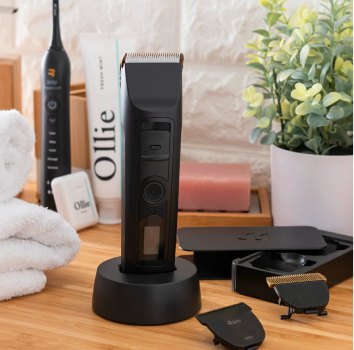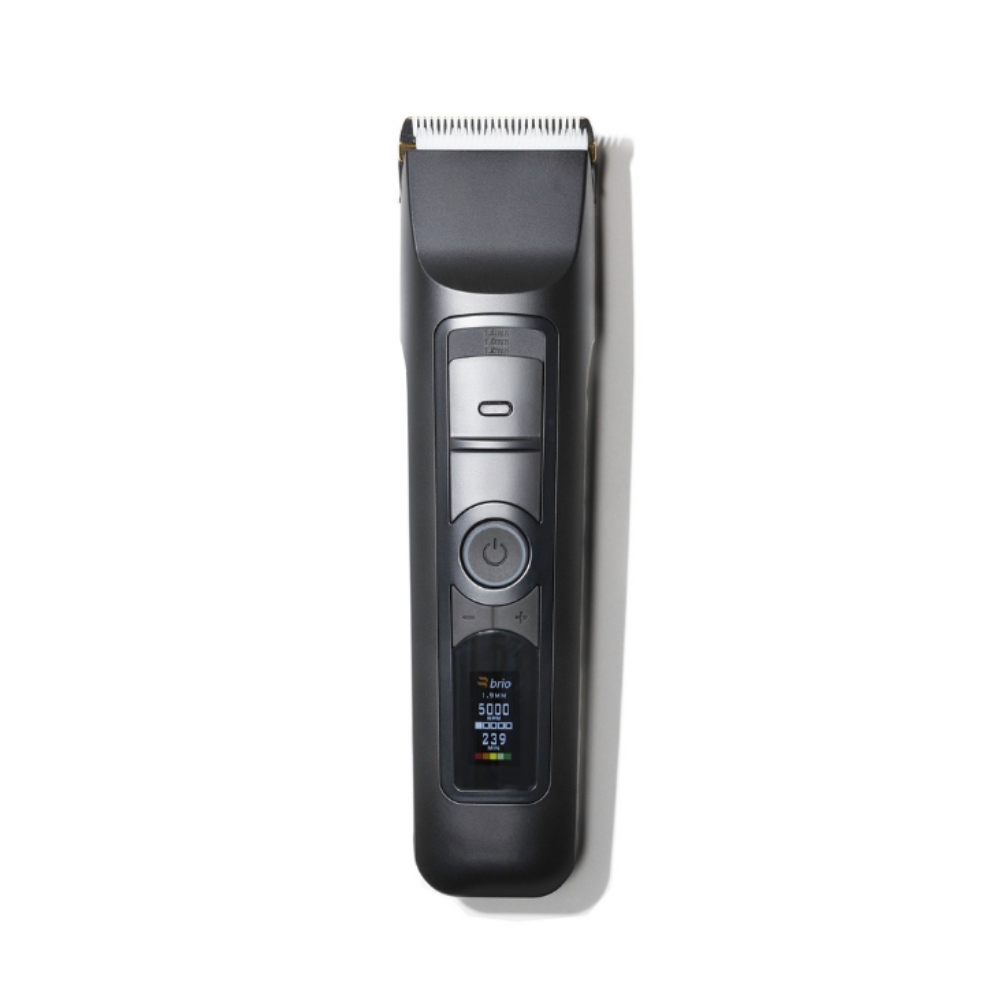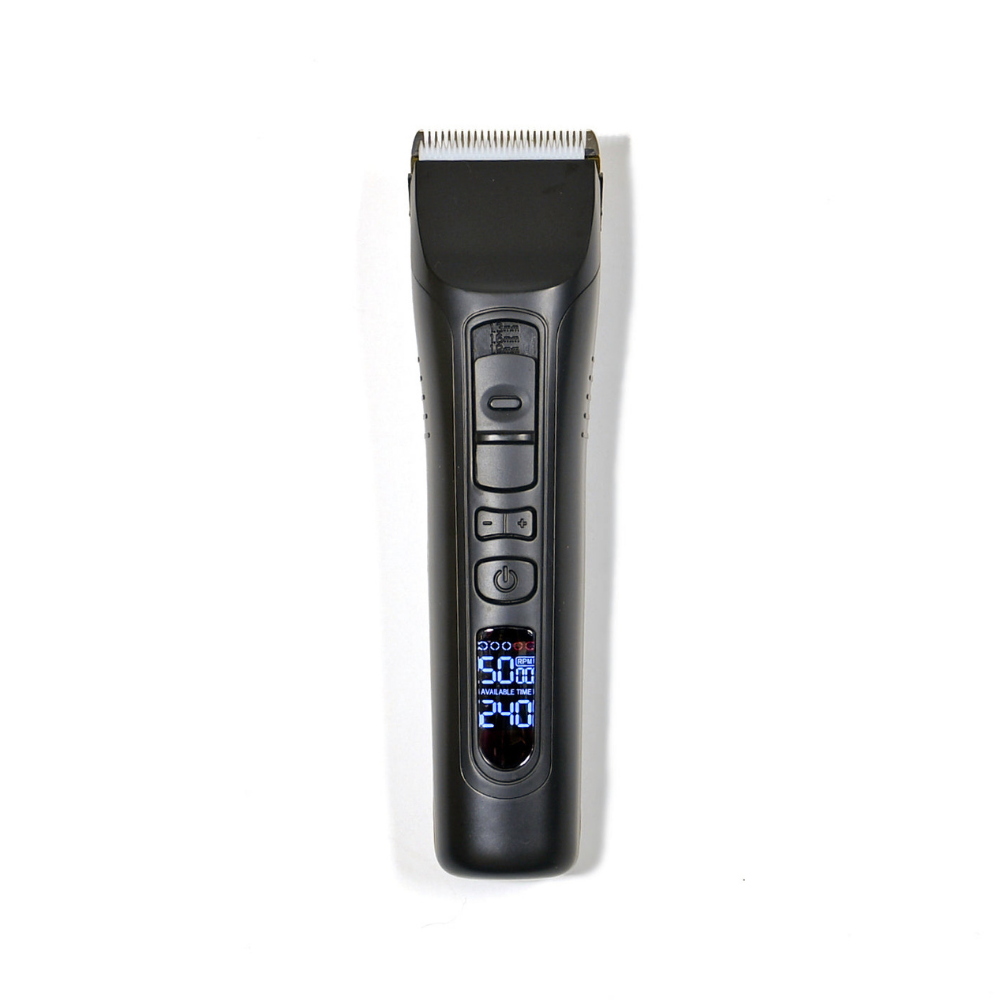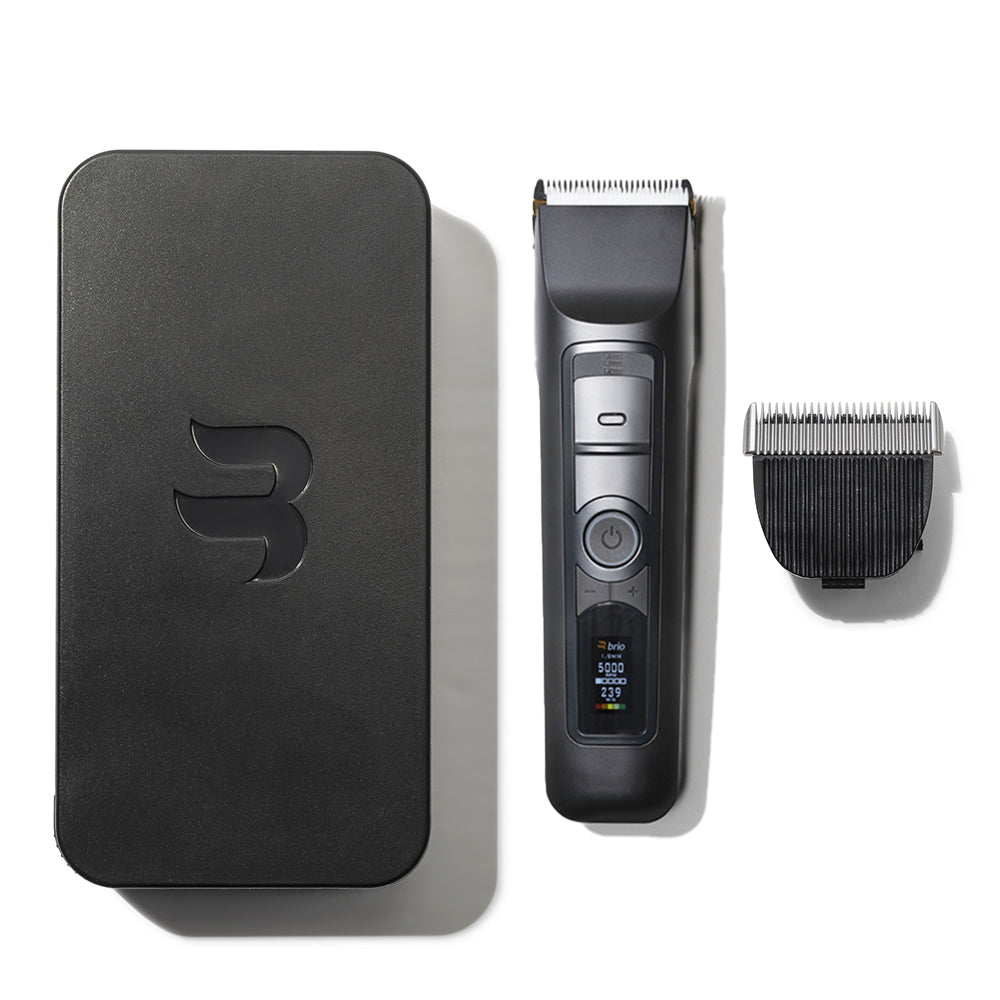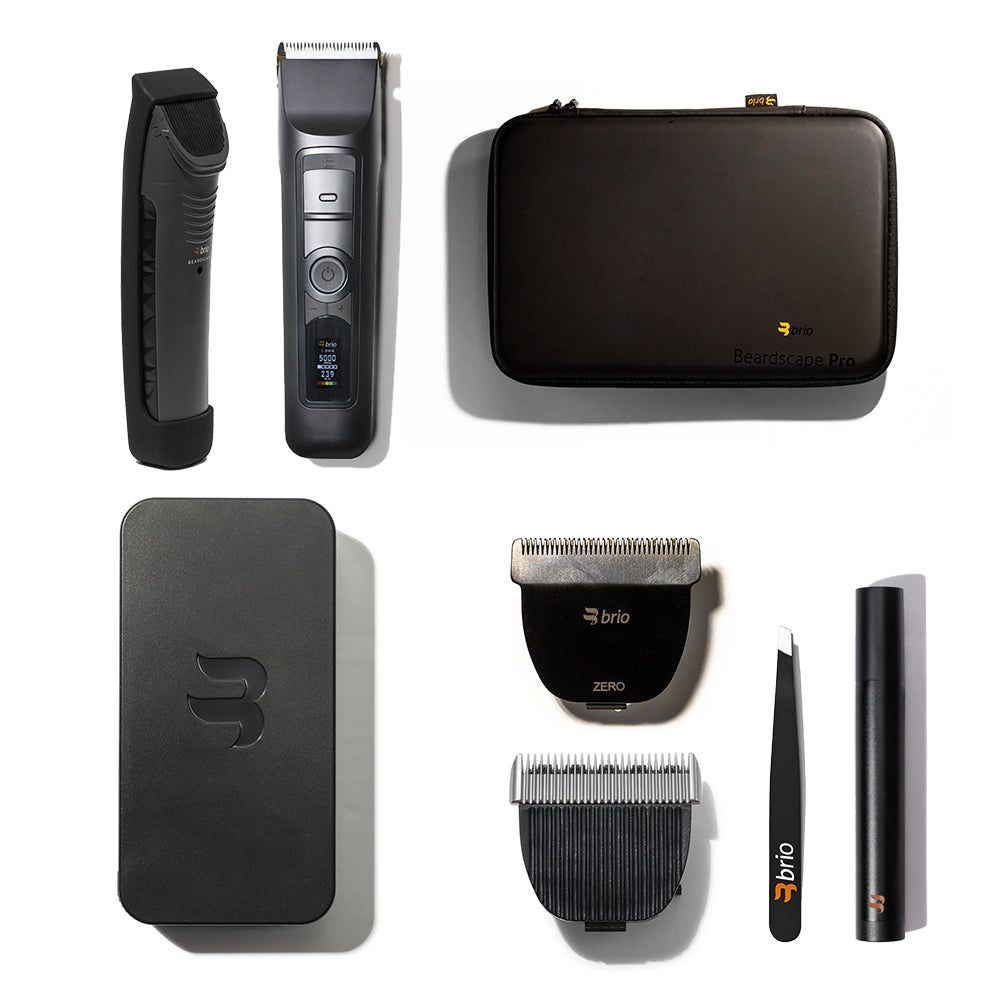Skincare for Sensitive Skin (Complete Guide)

Sensitive skin can be a challenge to manage, requiring a thoughtful approach to skincare and grooming. People with sensitive skin often experience irritation, redness, and discomfort, making it essential to choose the right products and techniques. This comprehensive guide will help you navigate the world of skincare for sensitive skin, providing practical advice and highlighting the best tools for the job, including why the Brio Beardscape is an excellent choice for trimming.
Understanding Sensitive Skin
Sensitive skin is characterized by a heightened reaction to various factors, including skincare products, environmental elements, and grooming tools. Symptoms often include redness, itching, burning sensations, and dryness. People with sensitive skin need to be particularly careful about the products they use and the grooming methods they adopt.
Common Triggers for Sensitive Skin
- Harsh Ingredients: Products containing alcohol, fragrances, and certain preservatives can trigger irritation.
- Environmental Factors: Pollution, UV exposure, and extreme weather conditions can exacerbate skin sensitivity.
- Grooming Practices: Shaving, in particular, can cause razor burn, rashes, and ingrown hairs.
Building a Skincare Routine for Sensitive Skin
Creating a skincare routine tailored to sensitive skin involves selecting gentle products and following practices that minimize irritation. Here’s a step-by-step guide to building an effective routine:
1. Cleansing
Use a mild, fragrance-free cleanser that removes dirt and impurities without stripping the skin of its natural oils. Look for products with soothing ingredients like aloe vera, chamomile, and oatmeal.
2. Toning
Choose an alcohol-free toner with calming properties. Ingredients like witch hazel, rose water, and green tea can help soothe the skin while balancing its pH levels.
3. Moisturizing
Hydration is crucial for sensitive skin. Opt for a hypoallergenic, non-comedogenic moisturizer that provides lasting hydration without clogging pores. Ingredients like hyaluronic acid, ceramides, and glycerin are excellent choices.
4. Sun Protection
Daily sun protection is essential. Select a broad-spectrum sunscreen with SPF 30 or higher, formulated for sensitive skin. Mineral sunscreens with zinc oxide or titanium dioxide are less likely to cause irritation.
Grooming for Sensitive Skin: Why Trimming is Better than Shaving
Shaving can be harsh on sensitive skin, often leading to razor burn, rashes, and ingrown hairs. In contrast, trimming offers a gentler alternative, providing a close trim without causing irritation. One of the best tools for trimming is the Brio Beardscape.
The Brio Beardscape: The Best Trimmer for Sensitive Skin
The Brio Beardscape stands out as the best option for those with sensitive skin due to its unique features:
- Flexibility: The adjustable settings allow for precise trimming, catering to different hair lengths and styles.
- Ceramic Blades: Unlike traditional metal blades, ceramic blades are gentler on the skin, reducing the risk of irritation.
- Long-Lasting Battery: With a powerful battery that lasts up to four hours, the Beardscape ensures you won't have to recharge frequently, making it convenient and reliable.
Using the Brio Beardscape for trimming not only helps prevent skin irritation but also reduces the occurrence of ingrown hairs. Trimming can also help remove old skin that can block pores, which is particularly beneficial for people prone to redness and breakouts.
Exfoliation: A Key Step for Sensitive Skin
Regular exfoliation helps remove dead skin cells, preventing clogged pores and promoting a smoother complexion. For sensitive skin, it’s important to choose gentle exfoliants:
- Chemical Exfoliants: Products containing alpha-hydroxy acids (AHAs) like lactic acid or beta-hydroxy acids (BHAs) like salicylic acid can be effective yet gentle options.
- Physical Exfoliants: If you prefer physical exfoliants, opt for products with fine, rounded particles to avoid microtears and irritation.
Exfoliate once or twice a week to keep your skin clear and radiant without overdoing it.
Hydration and Nourishment
Hydrating and nourishing your skin is crucial for maintaining its health and resilience. Sensitive skin often lacks adequate moisture, leading to dryness and discomfort. Incorporate the following tips into your routine:
- Humidifiers: Using a humidifier can add moisture to the air, helping to keep your skin hydrated, especially in dry climates or during winter.
- Hydrating Masks: Weekly hydrating masks with ingredients like hyaluronic acid, aloe vera, and cucumber can provide an extra boost of moisture.
- Drink Plenty of Water: Staying hydrated from the inside out is essential for overall skin health.
The Role of Diet in Skincare
What you eat can significantly impact your skin's condition. A balanced diet rich in vitamins, minerals, and antioxidants supports healthy skin. Consider incorporating the following into your diet:
- Omega-3 Fatty Acids: Found in fish, flaxseeds, and walnuts, omega-3 fatty acids help reduce inflammation and keep skin supple.
- Antioxidants: Berries, green leafy vegetables, and nuts are packed with antioxidants that protect the skin from damage.
- Probiotics: Yogurt, kefir, and fermented foods promote a healthy gut, which can positively affect your skin.
Managing Stress for Better Skin
Stress can take a toll on your skin, exacerbating conditions like eczema and rosacea. Adopting stress management techniques can help improve your skin’s health:
- Mindfulness and Meditation: Practicing mindfulness and meditation can reduce stress levels and promote overall well-being.
- Exercise: Regular physical activity helps improve circulation and reduce stress.
- Adequate Sleep: Ensure you get enough sleep, as rest is vital for skin repair and regeneration.
Patch Testing New Products
Before introducing any new product into your skincare routine, it’s essential to conduct a patch test. Apply a small amount of the product to a discreet area, like behind your ear or on your wrist, and wait 24-48 hours to check for any adverse reactions.
Choosing the Right Skincare Products
When selecting skincare products for sensitive skin, look for labels that indicate the product is hypoallergenic, fragrance-free, and dermatologist-tested. Here are some product recommendations:
- Cleanser: La Roche-Posay Toleriane Hydrating Gentle Cleanser
- Toner: Thayers Alcohol-Free Witch Hazel Toner with Rose Petal
- Moisturizer: Cetaphil Daily Hydrating Lotion
- Sunscreen: EltaMD UV Clear Broad-Spectrum SPF 46
- Exfoliant: Paula’s Choice Skin Perfecting 2% BHA Liquid Exfoliant
Embracing a Holistic Approach
Taking care of sensitive skin involves more than just applying the right products. A holistic approach that includes a healthy lifestyle, proper diet, and stress management is essential for achieving optimal skin health.
Why the Brio Beardscape is a Game-Changer
Returning to grooming, the Brio Beardscape deserves another mention for its remarkable benefits for sensitive skin. Its flexibility and ceramic blades ensure a close, comfortable trim without causing irritation. Additionally, its long-lasting battery makes it a practical and dependable choice for regular use.
Using a trimmer like the Brio Beardscape instead of traditional shaving methods can significantly reduce the risk of razor burn and rashes, making it a superior option for individuals with sensitive skin. The Beardscape also helps prevent ingrown hairs and removes old skin that can block pores, further minimizing redness and breakouts.
Conclusion
Caring for sensitive skin requires a thoughtful and gentle approach. By selecting the right products, adopting effective grooming practices like trimming with the Brio Beardscape, and maintaining a healthy lifestyle, you can keep your skin healthy and radiant. Remember, the key is to listen to your skin and adjust your routine as needed to ensure it remains calm and comfortable.
Embrace these tips and tools to manage your sensitive skin effectively, and enjoy the confidence that comes with having a clear, irritation-free complexion.
FAQs: Skincare for Sensitive Skin
1. What is sensitive skin?
Sensitive skin is a condition where the skin is more prone to irritation from products, environmental factors, and grooming practices. It often manifests as redness, itching, burning, and dryness.
2. What causes sensitive skin?
Sensitive skin can be triggered by harsh ingredients in skincare products such as alcohol, fragrances, and certain preservatives. Environmental factors like pollution, UV exposure, and extreme weather can also contribute, as well as grooming practices like shaving, which can cause razor burn and rashes.
3. How can I tell if I have sensitive skin?
Signs of sensitive skin include frequent redness and blotchiness, burning or stinging sensations after applying skincare products, itching and dryness, especially after cleansing or shaving, and easily irritated skin with visible reactions to environmental changes.
4. What should I look for in skincare products for sensitive skin?
When choosing skincare products for sensitive skin, look for labels indicating the product is hypoallergenic, fragrance-free, and dermatologist-tested. These features suggest the product is less likely to cause irritation.
5. Is shaving bad for sensitive skin?
Shaving can be harsh on sensitive skin, often leading to razor burn, rashes, and ingrown hairs. Trimming is a gentler alternative, providing a close trim without causing irritation.
6. Why is the Brio Beardscape recommended for sensitive skin?
The Brio Beardscape is highly recommended for sensitive skin due to its flexibility, ceramic blades, and long-lasting battery. It offers a close trim without irritation, helps prevent ingrown hairs, and removes old skin that can block pores.
7. How often should I exfoliate sensitive skin?
For sensitive skin, exfoliate once or twice a week using gentle exfoliants. Chemical exfoliants with AHAs or BHAs are effective yet mild options, while physical exfoliants with fine, rounded particles can also be suitable.
8. What ingredients should I avoid in skincare products for sensitive skin?
Avoid products containing alcohol, fragrances, and harsh preservatives. These ingredients are common irritants for sensitive skin and can exacerbate redness and dryness.
9. Can diet affect sensitive skin?
Yes, diet plays a significant role in skin health. A balanced diet rich in omega-3 fatty acids, antioxidants, and probiotics can help reduce inflammation and support a healthy complexion.
10. How can I manage stress to improve my sensitive skin?
Managing stress through mindfulness, meditation, regular exercise, and adequate sleep can positively impact your skin. Reducing stress levels helps prevent flare-ups of skin conditions like eczema and rosacea.
11. What is patch testing, and why is it important?
Patch testing involves applying a small amount of a new product to a discreet area of skin to check for adverse reactions. This is crucial for sensitive skin to avoid widespread irritation and ensure the product is safe for regular use.
12. What are the best practices for hydrating sensitive skin?
To keep sensitive skin hydrated, use a hypoallergenic, non-comedogenic moisturizer daily. Additionally, using a humidifier, hydrating masks, and drinking plenty of water can help maintain optimal skin moisture levels.

The BEST Beard Trimmer of 2024?
See who has won the battle.








